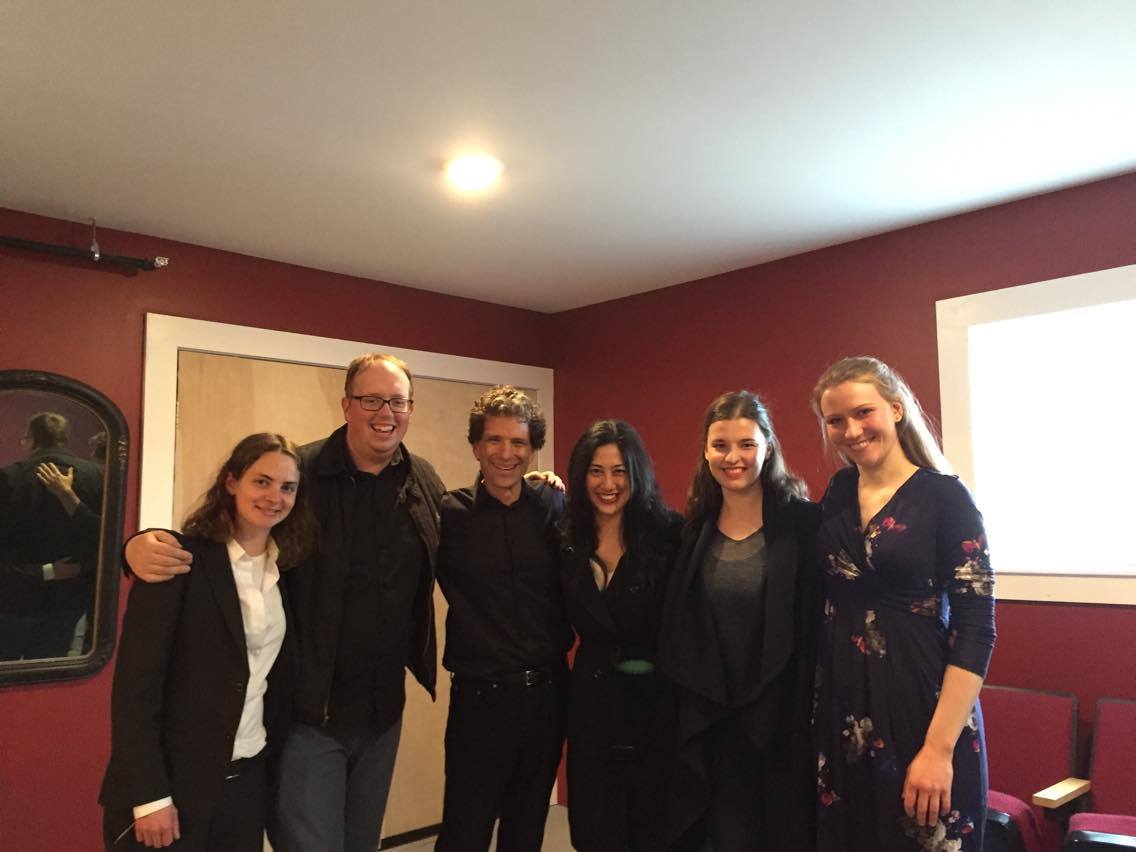Later this month, pianist Marisa Gupta, violinist Maria Włoszczowska, violist Rosalind Ventris, and cellist Jonathan Dormand will return to Yellow Barn for a second residency exploring playing styles heard on early recordings. The quartet will culminate their residency, entitled Faithful to the Spirit, with a concert on Monday, March 6 at 8:00pm at Next Stage in Putney.
In this post, Marisa reflects on last year’s residency and introduces the topics she hopes to explore this year.
Reflections
There was controversy recently when Nigel Kennedy accused the music establishment of producing “factory lines” of pianists and violinists, emphasizing technical perfection at the expense of individuality. “You do hear some amazing talent, but [it] has been kind of fettered,” he told the Observer. “If you listen to one version of a Brahms concerto or Beethoven against another one, they’re unfortunately too similar.” It has been interesting to contemplate this as I prepare for our return to Yellow Barn and reflect upon our residency last season.
Though I think it is doubtful that music colleges and record companies have consciously colluded to produce perfect automatons, devoid of individual expression, Nigel Kennedy raises an important point that lies at the heart of our residency: the need to question the uniformity and rigidity of playing styles today.
Our residency at Yellow Barn has allowed us to examine some of the complex factors that unwittingly led to this conformity (see earlier blog posts for more). The sense of discovery, risk taking and creativity associated with Yellow Barn has made it a fruitful environment in which to experiment with more daring ways of playing - ever supported by Seth Knopp’s encouragement to expand these boundaries further and further.
Our time last season was transformative in ways we didn’t expect. The lightness, brisk tempi, and ‘swing’ of Grieg’s own playing compelled us to propel our performance of his Cello Sonata forward, beyond our natural inclinations.
Performing Three Pieces for Piano Trio, based on fragments by Elgar though not completed by him, was liberating because it was music we neither previously knew, nor viewed as hallowed (as the pieces were not completed by the composer). Thus, we were more adventurous in experimenting with different ways of capturing the spirit of Elgar’s music, particularly in regards to tempo fluctuations, rubato, and synchronicity - inspired by some of the early performers we heard. This led to extremes in performance that we perhaps wouldn’t have attempted in a more canonical work.
The Piano Quintet in c minor by Vaughan Williams was a revelation for us. It was performed during the composer’s life, but a ban was placed on its publication, as Vaughan Williams did not consider it a mature work. Luckily for us his wife lifted the ban after the composer’s death and the piece is now published. In it one finds a great and moving masterwork. Though it was not a piece we were overly familiar with, in the process of rehearsing, one of the questions posed by Rosie Ventris was, were our interpretative decisions truly ours, or did we play passages in a certain way because that was what we heard in the few modern recordings that did exist of the piece? It made me question more broadly - to what extent is my playing genuinely mine? Am I truly conscious of the degree to which I am influenced by recordings I hear?
In trying to work with a wider expressive palate, some things were effective, and others, not quite idiomatic (yet) within the expressive world we have been conditioned in. Some fingerings from the original performers simply did not work with our physicality, nor did they sound good to our ears. There were instances where the string players experimented with slides, and while they may have been historically correct our attempts at that stage sounded contrived.
Ultimately though, our goal was never to resurrect a dead style. Rather, our time at Yellow Barn has been about looking to the past to help us unlock richer ways of communicating the spirit of the music we perform, in a way that is modern, energetic and emotionally direct. We look forward to seeing where the second part of our residency leads us.

(Photo taken after last year's Faithful to the Spirit residency concert)
